AI vs Human - Which One Will Shape the Future
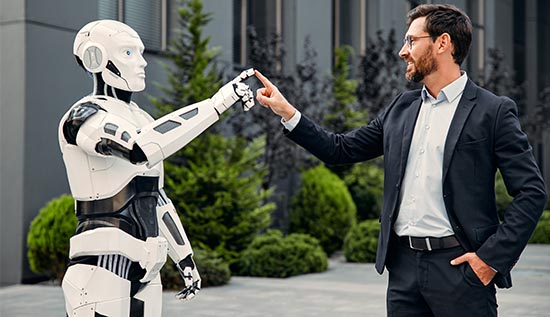
AI vs Human: Which will shape the future? Dive into the artificial intelligence vs human intelligence debate and uncover the potential of both.
The debate surrounding AI vs Human intelligence has emerged as one of the most captivating and widely discussed topics of the 21st century. A number of significant and thought provoking questions are brought up by the remarkable pace at which AI technology is developing: Can AI replace human intelligence?
How do the cognitive capabilities of artificial intelligence vs human intelligence compare to the complexities of the human mind? Perhaps most significantly, which of the two will eventually have the biggest impact on how our world develops in the future?
This article explores in detail the current discussion on AI vs human intelligence examining how artificial intelligence works exploring why AI is important cross a range of industries and also examine the possible future directions of both AI and human cognition.
What Do You Mean by Artificial Intelligence?
AI is the simulation of human intelligence in computers designed to understand learn and make decisions. AI is reliant on algorithms data and also processing capacity, in contrast to human intelligence, which is motivated by feelings, experiences and consciousness also. The AI vs Human whether or whether machines can accurately mimic the depth, adaptability and inventiveness of human intellect is a topic of much discussion.
Here, ChatGPT and other AI programs might produce language that seems human and self-driving cars use AI to negotiate tricky roads. These systems, however, lack the essential elements of human intelligence, such as moral reasoning, emotional depth and subjective experiences. The ongoing artificial intelligence vs human intelligence debate highlights these fundamental differences, raising questions about AI’s role in society. Understanding what do you mean by artificial intelligence is crucial to appreciating both its remarkable capabilities and its inherent limitations.
How Artificial Intelligence Works
Investigating how artificial intelligence works is also crucial to comprehension the AI vs Human relationship. AI systems operate using the following processes:
1. Data collection: AI needs to digest vast volumes of data before it can learn anything. For example, facial recognition software analyzes millions of photos to find patterns.
2. Processing: AI makes forecasts and finds trends using algorithms.
3. Learning: Machine learning a subtype of artificial intelligence allows computers to develop over time without explicit programming.
4. Decision-Making: Using processed data, AI makes decisions or performs activities such as recommending products on e-commerce platforms.
For example, Netflix uses AI to analyze user preferences and recommend shows, while healthcare systems use AI to spot ailments faster than humans.
Why AI is Important?
The importance of AI cannot be overstated. Here’s why AI is important in shaping the future:
- Efficiency: AI frees humans to concentrate on strategic and creative work by automating repetitive activities.
- Accuracy: In fields like medicine, AI can analyze data with precision, reducing human error.
- Innovation: From smart homes to autonomous vehicles, AI drives technological advancements.
For example, chatbots driven by AI, such as Siri and Alexa, have completely changed the way people use technology, and financial predictive analytics aids in the decision-making process for companies.
Artificial Intelligence vs Human Intelligence Debate
The artificial intelligence vs human intelligence debate revolves around whether AI can surpass human capabilities. AI is really good at processing data and also identifying patterns but human intelligence is better at being creative empathetic and thinking abstractly.
AI is capable of creating music, for instance, but it lacks the human composer's emotional nuance. In a similar vein, although AI is capable of diagnosing illnesses, it is unable to deliver the human-centered treatment that physicians do. In the end, the debate between AI and humans highlights the complementary nature of both intelligences.
Can AI Replace Human Intelligence?
The question of can AI replace human intelligence is not just intricate but also profoundly philosophical, addressing the core of what it means to reason, think and see the universe. Although artificial intelligence has shown impressive potential, frequently outperforming humans in particular areas like robotics, data processing and problem-solving, it still falls short when it comes to replicating the full spectrum of AI vs Human intelligence.
Unlike AI, AI and human intelligence differ greatly since human intelligence is holistic and includes aspects that are deeply rooted in human nature and are not currently captured by AI models, such as consciousness, emotions, creativity, intuition and ethical reasoning.
The more intricate cultural nuances, emotional undertones and contextual factors that a human writer inherently inserts into their work are beyond the scope of AI-powered systems, which, for example, may generate well structured essays in a matter of seconds. Similar to how AI has revolutionized industries by streamlining processes and automating repetitive tasks, it cannot yet take the place of employment requiring empathy and genuine human connection.
Not only do these professions require brains, but they also require emotional intelligence, moral discernment and interpersonal skills areas in which humans have an incomparable advantage. Thus, when artificial intelligence develops and changes many facets of society, it is unlikely to fully answer the question of can AI replace human intelligence, but rather serve as a powerful tool to augment and enhance human capabilities.
The Future: AI and Human Collaboration
Rather than viewing AI vs Human as a competition, the future lies in collaboration. While humans concentrate on creativity and emotional intelligence, AI can tackle data-driven tasks. AI for instance, can evaluate medical records in the healthcare industry while physicians give patients individualized treatment.
In education, AI can personalize learning experiences, but teachers will remain essential for mentorship and emotional support also. The synergy between AI and human intelligence will drive innovation and progress.
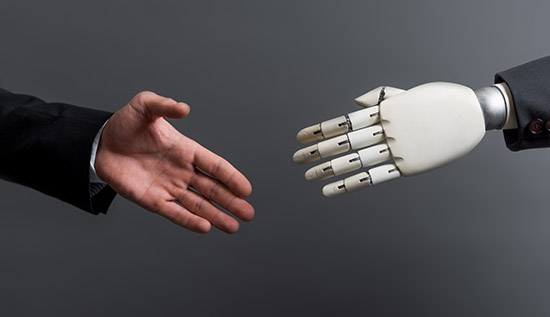
The AI vs Human debate is not about choosing one over the other but understanding how both can coexist and complement each other. Even while AI is revolutionizing sectors and increasing productivity, human intelligence is still indispensable in fields that demand originality, compassion and moral discernment.
By accepting the benefits of each we may build a society in which people and technology coexist. As we continue to explore what do you mean by artificial intelligence and its potential the collaboration between AI and human intelligence will undoubtedly define the future.
Read More: DeepSeek vs. Other AI Tools: Which One is Best for Cambodia?
More Articles
 14 Feb 2026
14 Feb 2026
KPIs Every Business Should Track Using Tech Solutions
Use smart KPI tracking tools and business KPIs tech solutions to measure growth, optimize operations, and stay competitive in today’s digital economy.
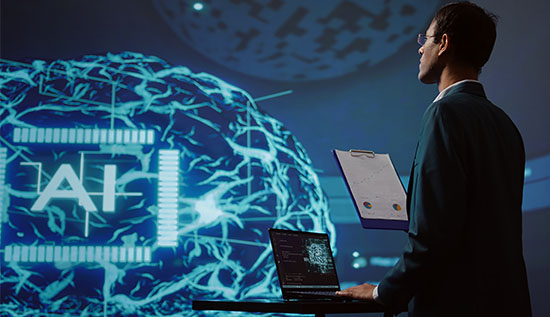 13 Feb 2026
13 Feb 2026
Top 10 AI Tools Transforming Business Workflows in 2026
Top AI tools transforming business workflows in 2026 and workflow optimization examples for modern organizations.
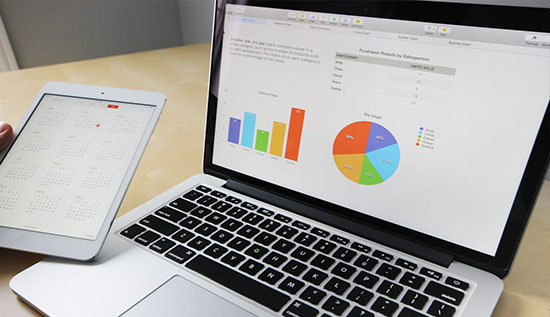 12 Feb 2026
12 Feb 2026
Predictive Analytics for CEOs: Tools & Strategies for Growth
Learn how leverage predictive analytics for CEOs to drive growth, improve forecasting, and strengthen strategic decision-making.
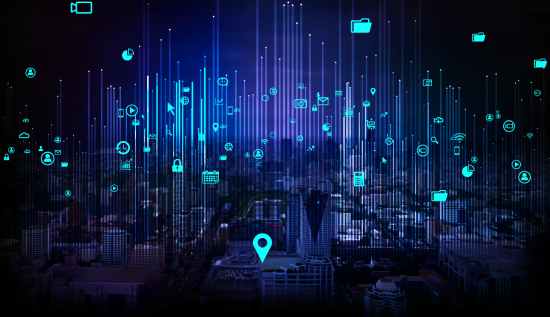 12 Feb 2026
12 Feb 2026
Tech Event Coverage: CES 2026 & MWC 2026 Highlights
Tech Event Coverage: CES 2026 & MWC 2026 Highlights with top gadgets, AI breakthroughs, mobile trends, and major industry announcements.